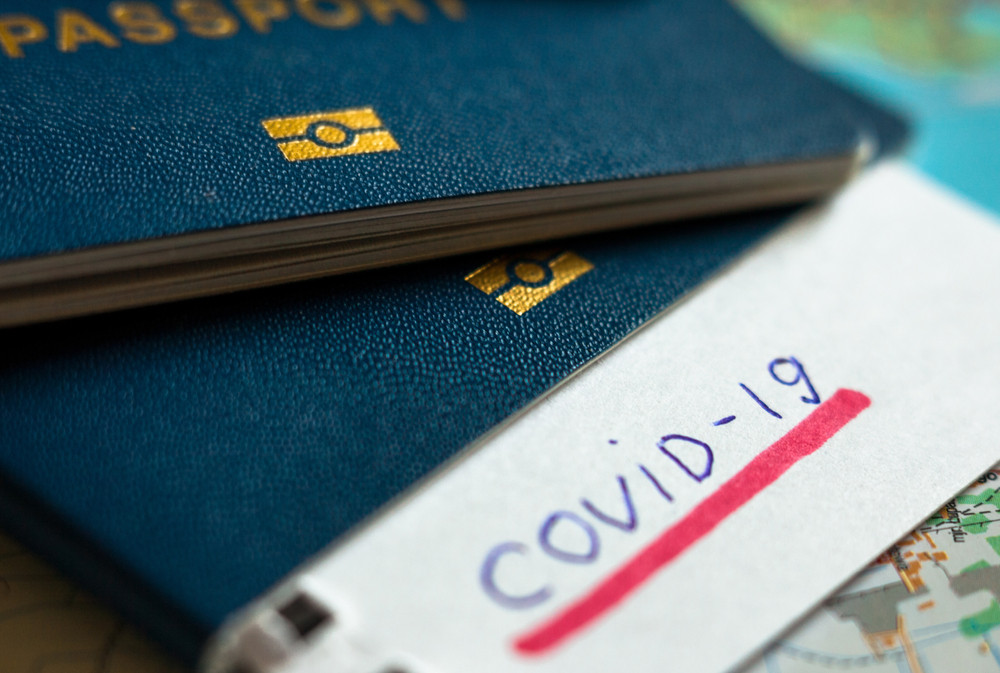Popular Reads
Top Results
Can't find what you're looking for?
View all search resultsPopular Reads
Top Results
Can't find what you're looking for?
View all search results'Sick until proven healthy': How COVID-19 pandemic changes global security
Similar to after the 9/11 attack, the COVID-19 pandemic will also lead to increased security at points of entry such as airports, stations and ports.
Change text size
Gift Premium Articles
to Anyone
COVID-19 has changed the international security paradigm.
Almost two decades ago, security forces around the world focused on how to deal with terrorist threats following the 9/11 attacks that killed nearly 3,000 people.
Governments invested resources and effort in counter-terrorism tactics, including surveillance, detention, “enhanced” interrogation, the gathering of personal data and the prosecution of terrorist suspects in military tribunals. Some of these measures also created controversies, among them violations of individuals’ privacy. People could be suspected, monitored and detained for the sake of national security.
Yet, with the COVID-19 pandemic, the global fear and efforts to counter it might move the focus from terrorism and terrorists towards diseases and those infected by it.
COVID-19 has taken about 400,000 lives to date. By comparison, terrorism has killed about 21,000 people a year over the past decade.
Unlike terrorists, COVID-19 does not choose its victims; anyone with varying degrees of vulnerability can be infected. It is like a wild ball released in an open space. It will hit anything that comes into contact with it indiscriminately, triggering a new global security concern.
Same tools, different purpose
In the post-9/11 era, nations were preoccupied with how to identify and track potential terrorists
But now, with the COVID-19 pandemic, government will extend their targets for security measures. Governments will prioritize spotting the spread of any virus and understanding and controlling the movement of people to prevent further spread.
For policymakers, intelligence or security officers, the priority will perhaps be less about stopping certain individuals from potentially carrying out terrorist attacks, and more about checking whether individuals are sick or not.
Their focus of attention will be on our bodies’ temperature and blood pressure.
For agencies that intercept communications, there may also be changes in what they probe. Intelligence-sharing between nations will shift to revolving around new diseases.
In addition, the same technology used to hunt down terrorists will be used to identify those who are sick and to track the spread of disease. This has started to happen in various countries.
China and Russia have used CCTV cameras to track people during the pandemic. Drones are being deployed to warn people to wear their masks. South Korea, Singapore and Israel track credit card transactions, phone location data and CCTV video as well as conversations with people, to create a system where confirmed cases can be tracked.
Intelligence agencies may still collect meta-data from phones, online searches or other forms of online activity. But it may no longer be about whether individuals search for “how to make a bomb” online, but about whether they search online about certain diseases or drugs.
Similar to after the 9/11 attack, the COVID-19 pandemic will also lead to increased security at points of entry such as airports, stations and ports.
But the difference is those measures will aim to ensure that people traveling in and out the country are not infected by any disease. People might be stopped because they “look sick” and interrogated about their medical histories.
Such steps have gradually become apparent today. For instance, India is beginning to stamp the hands of people suspected of having COVID-19 on arrival at airports. Reservation data from airlines and trains are being monitored to ensure those people didn’t travel.
Countries may also close their borders to other countries with a high number of cases of certain diseases. Many countries, including Egypt and Qatar, have closed their borders due to coronavirus.
Who will be the most affected?
The 9/11 attacks led to racial profiling direct at certain communities. Since the perpetrators were identified as Arabs and Muslims, collateral damage led to innocent Arabs and Muslims worldwide being swept up in the discriminatory profiling. They have been subject to prejudice, discrimination and bias.
COVID-19, however, may expand this. Racial profiling may still be relevant as today there is a prejudice against China where COVID-19 originated. But, as viruses can infect anyone, targets of increased security measures will also widen.
If someone looks sick or coughs or sneezes in a public place, that may be enough to get them hostile glares, or additional checks at airports.
Today, sick individuals are seen as health hazards and people have increased their vigilance when meeting a sick person. As with Muslims after 9/11, the sick person faces discrimination and violations of privacy, ranging from receiving a look of fear, having their temperature or health conditions tested, to being quarantined and spied on as a necessary means to achieve greater national security.
While the targets of post-9/11 security measures are “guilty until proven innocent”, we might now enter an era where people are considered sick until proven healthy.
In the post-pandemic age, it is possible countries with the most COVID-19 cases will be greatly affected by health-related measures taken by more vigilant countries. Moreover, the reality on the ground shows Western countries such as the US and Europe are the least prepared and have the highest numbers of cases in the world.
It should not be surprising then if, for example, US citizens have to go through additional checks and interrogations when landing in a developing country such as Vietnam in Southeast Asia.
---
Dikanaya Tarahita, an Indonesian journalist, co-authored this article.![]()
Muhammad Zulfikar Rakhmat, Lecturer in International Relations, Universitas Islam Indonesia (UII)
This article is republished from The Conversation under a Creative Commons license. Read the original article.







